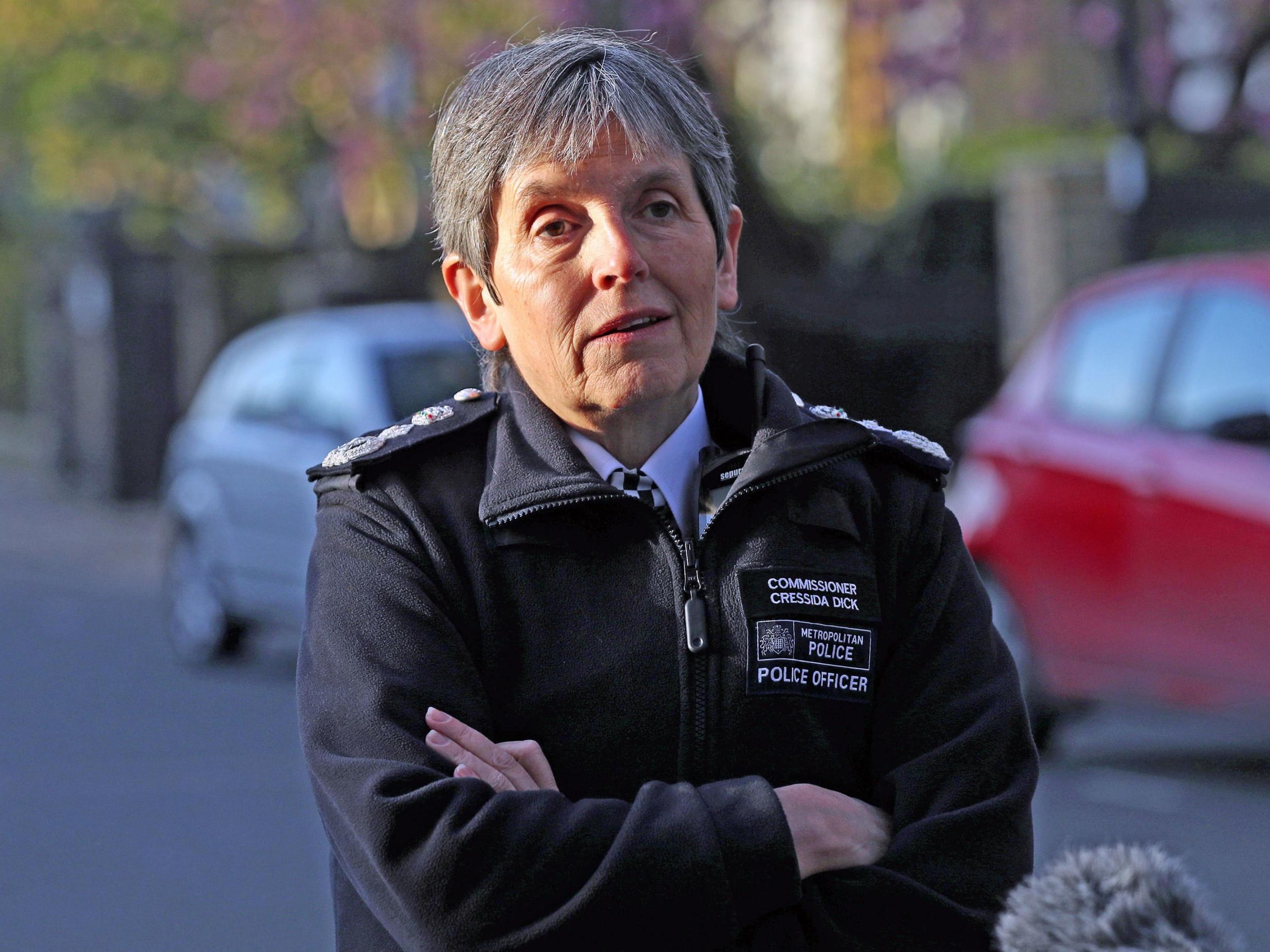Not ‘helpful’ to label Metropolitan Police institutionally racist, commissioner Cressida Dick says
Cressida Dick insists she is not in ‘denial’ over racism in force

Your support helps us to tell the story
From reproductive rights to climate change to Big Tech, The Independent is on the ground when the story is developing. Whether it's investigating the financials of Elon Musk's pro-Trump PAC or producing our latest documentary, 'The A Word', which shines a light on the American women fighting for reproductive rights, we know how important it is to parse out the facts from the messaging.
At such a critical moment in US history, we need reporters on the ground. Your donation allows us to keep sending journalists to speak to both sides of the story.
The Independent is trusted by Americans across the entire political spectrum. And unlike many other quality news outlets, we choose not to lock Americans out of our reporting and analysis with paywalls. We believe quality journalism should be available to everyone, paid for by those who can afford it.
Your support makes all the difference.The commissioner of the Metropolitan Police has said it is not "helpful" to talk of the force being institutionally racist.
Cressida Dick, Britain's most senior police officer, insisted she was not "in denial" over police treatment of black people and ethnic minorities but suggested "everybody knows" Scotland Yard has "zero tolerance" of racism within its ranks.
The father of murdered London teenager Stephen Lawrence said in June he believed police remained institutionally racist decades after promised reforms in the wake of the botched investigation into his son's killing.
But speaking to Channel 4 News on Thursday, Dame Cressida suggested the term had a "contested definition".
"I think it means all sorts of things to different people. I don’t think it’s helpful," she added.
The commissioner said: “We have zero tolerance of racist behaviour within the Met. Just last week somebody was sacked for racist conduct. And everybody knows that is the case.
“We embraced the challenge, if you like, that was set for us 20 years ago by Sir William Macpherson in the Stephen Lawrence Inquiry in which he came up with a definition of institutional racism.
“I was the person charged with implementing the recommendations and I’m very proud of what we did. I think we’ve come a very, very, very long way.”
The police chief said she regularly looked for signs of bias in the way the force operated, and said she was “horrified” to discover that black, Asian and minority ethnic staff in the Met were twice as likely to find themselves in a misconduct process.
Meanwhile, Dame Cressida said she also cared “deeply” about the investigation into Lawrence’s death.
The 18-year-old was murdered by racists in Eltham, south east London in April 1993.
Two of the 18-year-old’s killers, Gary Dobson and David Norris, were jailed for murder in 2012, but three remain at large.
She said the investigation would be reviewed every two years to see if there was any further evidence to pursue.
“I don’t want to hold out false hopes, but it seems to me extremely likely if you look forward, that at some stage we will not be in an inactive phase (of the investigation),” Dame Cressida said.
On the issue of police stop and search, she said young black men were “hugely disproportionately stabbed and killed” and “hugely tangled up” in the criminal justice system.
She said police carry out stop and searches in high violence areas to ensure knives were taken off the street, with 4,500 weapons removed last year.
During the wide-ranging interview, Dame Cressida was also asked about the investigation surrounding American paedophile Jeffrey Epstein and the Duke of York’s alleged involvement in the case.
“The locus and focus of any investigation in relation to Jeffrey Epstein for example is clearly in America," she said.
“If the Americans need our assistance at any stage, then we will give them that.”
Epstein killed himself last August before facing trial on sex trafficking and conspiracy charges.
One of Epstein’s victims, Virginia Giuffre, who claims she was trafficked by the financier, alleges Andrew had sex with her on three separate occasions, including when she was 17, still a minor under US law.
The duke categorically denies he had any form of sexual contact or relationship with Ms Giuffre.
Additional reporting by Press Association
Join our commenting forum
Join thought-provoking conversations, follow other Independent readers and see their replies
Comments